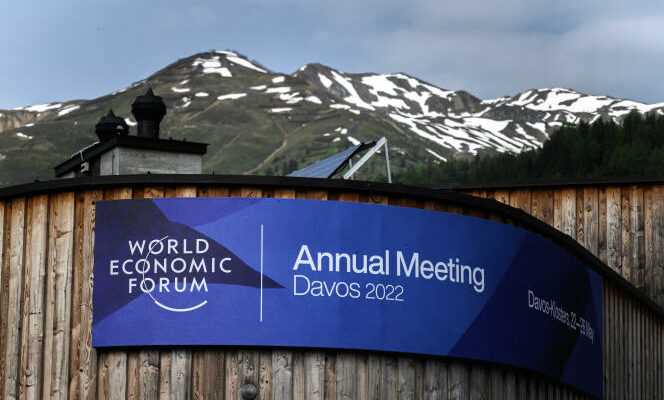DArmed police at every crossroads, a cordoned off city center, processions of limousines and helicopters: Davos has regained some of its usual rhythm, that of an improbable meeting of the greats of this world in a lost corner of the Alps Swiss. After two years of absence, the famous economic forum is reborn from its ashes. But in a less festive atmosphere. A little less crowded, 2,200 people, compared to more than 3,000 previously, a little less celebrities too.
We will all the same meet the boss of the European Central Bank, Christine Lagarde, the President of the European Commission, Ursula von der Leyen, the Spanish Prime Minister, Pedro Sanchez, the German Chancellor, Olaf Scholz, and around fifty Ministers of finance or the environment. The star of this Monday, May 23 was undoubtedly to be Volodymyr Zelensky, who was to address the speakers from his bunker in kyiv. North Atlantic Treaty Organization Secretary General Jens Stoltenberg will be in attendance at Davos, but not his Russian counterpart.
It should be noted, on the diplomatic level, that the special envoy for the climate of the People’s Republic of China, Xie Zhenhua, braved the sanitary confinement which affects his country to come. He will meet his American equivalent, John Kerry, also on the trip. Enough to restore some of its diplomatic prestige to this Swiss summit, once so decisive in the evangelization of world free trade.
Less present, the French play low profile
Today, it would rather be a “postneoliberal” planet to imagine. The world of tomorrow will be less open, more fragmented and more fragile too. From now on, it is no longer the economy that dictates its tempo to politicians, but the reverse. We will therefore talk a lot about geopolitics, since it is now what sets the course: a rarer and more expensive energy, hostage to the belligerents, a muted de-globalization, which requires reinventing supply chains in the service of a more careful. And, overhanging all this, a climate change whose first victims are the emerging countries, many of whom have come to testify.
Less present, the French are playing low profile. Legislative oblige, no policy has made the trip. If the bosses of Saint-Gobain, L’Oréal, Sanofi or Axa will be there, many of them are newcomers, who seek both to make themselves known and to rub shoulders with this great exercise in economic diplomacy. world. With a question that hovers like storm clouds above the Graubünden valley: will Davos, which was the symbol and the prophet of the great opening of world trade, be the theoretician of its withdrawal and the return political passions?
